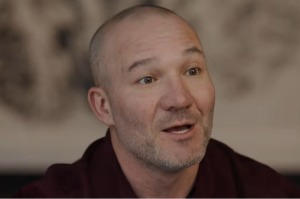Top 12 Mistakes Mission Agencies Should Avoid
World renowned missiologist Dr. Ralph D. Winter shared 12 past mistakes made by Western mission agencies that Asian missiologists should avoid when he spoke Friday at the Asian Society of Missiology conference in Bangkok.
Winter, the founder of the U.S. Center for World Mission and named by Time magazine as one of America's top 25 evangelicals, was giving the closing speech at the first-ever ASM international conference.
In his address, the American missiologist acknowledged that the list of 12 mistakes is "merely" to his "best understanding" and Asian missiologists would have the final say on their validity. Winter hopes, however, that Asian mission leaders learn from what Western agencies did wrong and avoid the same pitfalls.
Winter's first criticism was that Western missions are starting Bible schools rather than universities. Winter gave examples of successful past mission leaders and movements which were notable for the number of universities they established. Yet later when evangelicals who never went to college did missions they built Bible schools, Bible Institutes or theological schools that "replaced" or "ignored" the university tradition.
"In the last 50 years, the majority of American mission agencies have not founded a single university," Winter emphasized.
The mission expert pointed out that in the last 100 years in the United States 157 Bible Institutes eventually converted to colleges and universities after 60-70 years. He also pointed out national leaders who are the product of Western mission agencies recognized the "great influence of the university pattern" and have themselves founded over 40 universities in the last 40 years.
"Why is it that missionaries have not realized that Bible Schools, no matter how high the quality of instruction and curricula, simply do not represent the global mainstream of the university pattern?" questioned Winter.
Furthermore, 90 percent of the money spent on maintaining about 4,000 Bible institutes and seminaries around the world is focused on "untried youth" looking for a place to stay, food, and perhaps English, rather than the "real leaders" in the churches.
"Often their students have already failed to get into several other schools. Meanwhile, the gifted leaders of many growing church movements cannot get help from these schools," Winter noted.
The U.S. missiologist said he disapproves of church movements that restrict their choice of pastors to people selected by schools not congregations and noted the movements are not growing or in decline.
Another mistake is that some congregations are bypassing mission agencies when sending church members as missionaries. Winter criticizes this practice because churches lack the insights of missiology and the vast experience of mission agencies.
"It may be true that some mission agencies are more experienced and wiser than others, but to my knowledge there is no example of a local congregation bypassing mission agencies with any great success," he stated.
Other similar criticisms fell upon congregations which send every family in its church overseas for a two-week project. Winter called it a "marvelous idea" to educate people about foreign lands, but "incredibly expensive" and "very questionable" in its contribution to the cause of missions.
The phenomenon of short-term mission was also another mistake that Winter said Asian missions should avoid. Nearly 2 million short-termers leave the United States each year compared to 35,000 long-term missionaries. It costs at least five time more overall to send a short-timer than a long-term missionary – financial support that Winter suggested would be better invested in a long-term missionary.
He resisted, however, from calling short-term mission a bad thing, but rather urged balance.
Missiologists are also confronted with the thorny issue of science. Winter argues that science is not an enemy but helps Christians recognize God more fully.
"Every missionary must take with him to the mission field both a microscope and a telescope if we are to properly glorify God," Winter advised. "Even more important is the need to take to the field a true reverence for the glory of God in Creation."
In order to help bring educated people to Christ, the church should be aware and integrate discovery in nature into its worship and not lead young people "astray" by "superficial" theories that the world is only 6,000 years old.
"That is an improper reading of Genesis 1:1, as well as a reckless ignoring of thousands of honest Evangelicals who are outstanding scientists," Winter argued.
He also called on missionaries to go beyond healing the sick but work on the forefront of eradicating diseases. Malaria – a disease that forces 45 million Africans out of the workplace every day of the year – is curable. Humans know how to eradicate malaria but there is no Christian mission agency involved in the eradication of malaria, Winter pointed out.
"It is very embarrassing to have to admit that the Church of Jesus Christ is expecting billionaires like Bill Gates to do that job for them," said arguably the most accomplished missiologist of the 21st century. "Worst still, Christians are misrepresenting the love of God in Christ if they do not become noted for their relentless efforts in such a cause."
Winter also called it a mistake to believe that the Bible seeks only to reconcile man with God, but "more precisely" it should be understood as a calling into a battle of "God-plus-man" versus Satan and his evil works.
"People are asking 'what kind of God would sponsor a world like this?'" Winter said. "They say this because they are unaware of the existence of Satan and his intelligent opposition to God. Thus, instead of God being glorified, He is being blamed for the work of Satan."
Satan, not God, is to be blamed for diseases, poverty, injustice and corruption and it is the responsibility of Christians to co-work with God to fight the works of Satan.
"We are lulled into inaction by the widespread belief that Satan was 'defeated' at the Cross," Winter said. "In fact, the Cross was the turning point beyond which there have been centuries of ongoing conflict with a Satan yet to be completely defeated."
The renowned missiologist, who helped found ASM and its journal, concluded by stating the 12 mistakes are based on his own opinion.
"I hope it is clear that I have not wanted to do more than point out what, [according to] my estimation[s], are the failings and shortcomings in the history of Western mission thinkers," Winter said. "My perspectives may be faulty. At least I have raised certain issues that Asian missiologists may also confront in their work."
He hopes it can be a two-way street and the West can learn from members of the ASM.
The Asian Society of Missiology Bangkok 2007 Conference, Oct. 30-Nov.2, brought together 55 people from 15 countries with the purpose of helping Asian churches more effectively engage in mission as it emerges as a new force in world mission. The theme of the conference was "Asian Mission: Yesterday, Today, and Tomorrow."
Speakers addressed Asian mission from historical, theological, leadership development, and strategic perspectives.
Other prominent speakers included Dr. David J. Cho of DavidCho Missiological Institute and Dr. Hidalgo Garcia of Overseas Missionary Fellowship.
An annual ASM international conference is expected to be held each year to help the Society continue its role as a "think tank" for Asian mission.
12 Mistakes Western Mission Agencies Make:
1. The Mistake of Starting Bible Schools, Not Universities
2. The Mistake of Only "Salvation in Heaven," not "Kingdom on Earth"
3. The Mistake of Congregations Sending Missionaries, Not Using Mission Agencies
4. The Mistake of Whole Congregations in Direct Involvement, Not Professional Missions.
5. The Mistake of Insisting that Devout Followers of Jesus Call Themselves "Christians" and Identify with the Western Church
6. The Mistake of Sending Only Money, Not Missionaries
7. The Mistake of Sending Short-Termers, Not Long-Termers
8. The Mistake of Not Understanding Business in Mission and Mission in Business
9. The Mistake of Healing the Sick, Not Eradicating Disease Germs
10. The Mistake of Thinking "Peace" Not "War"
11. The Mistake of Assuming Science Is a Foe Not a Friend
12. The Mistake of An Evangelism That is Not Validated and Empowered by Social Transformation



























